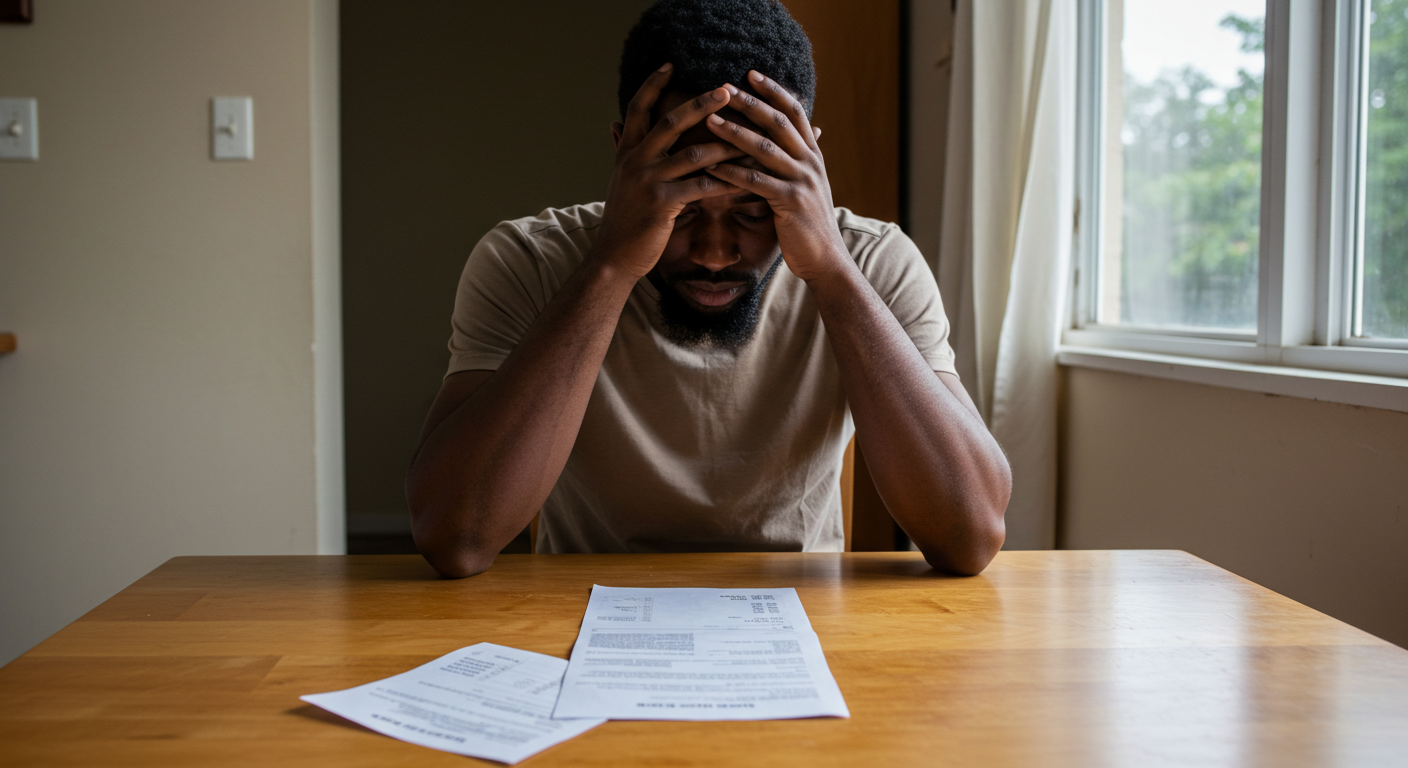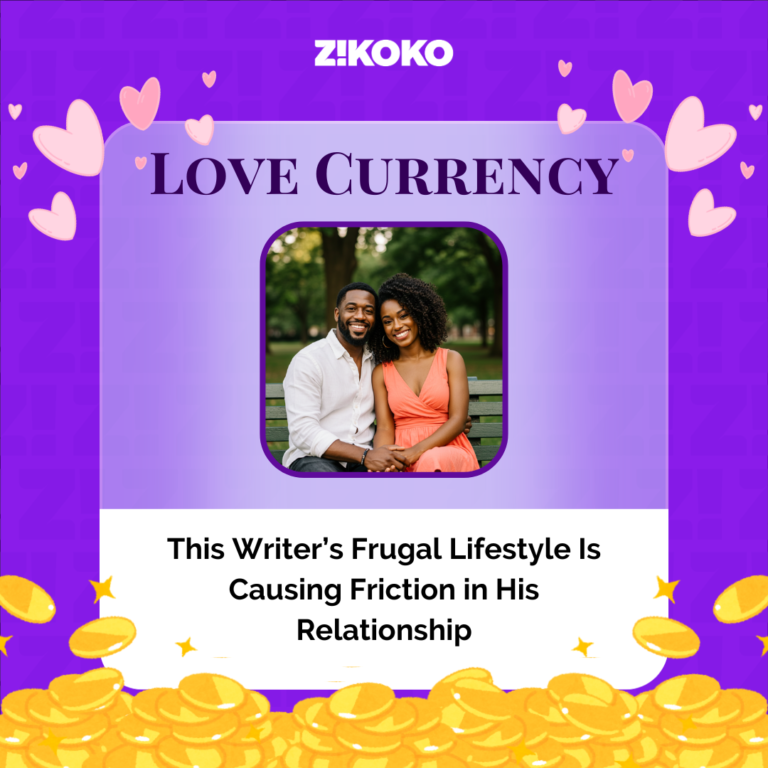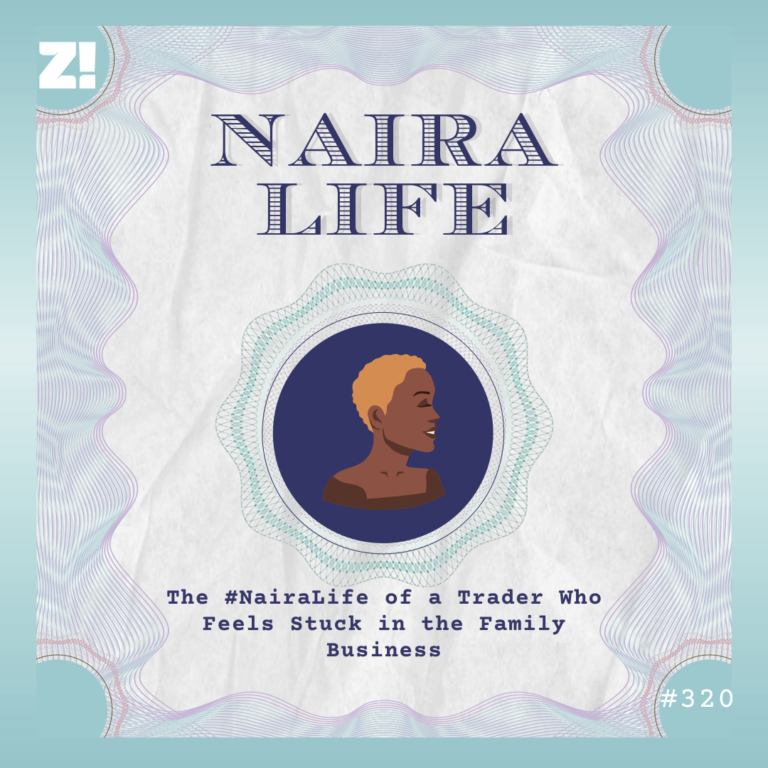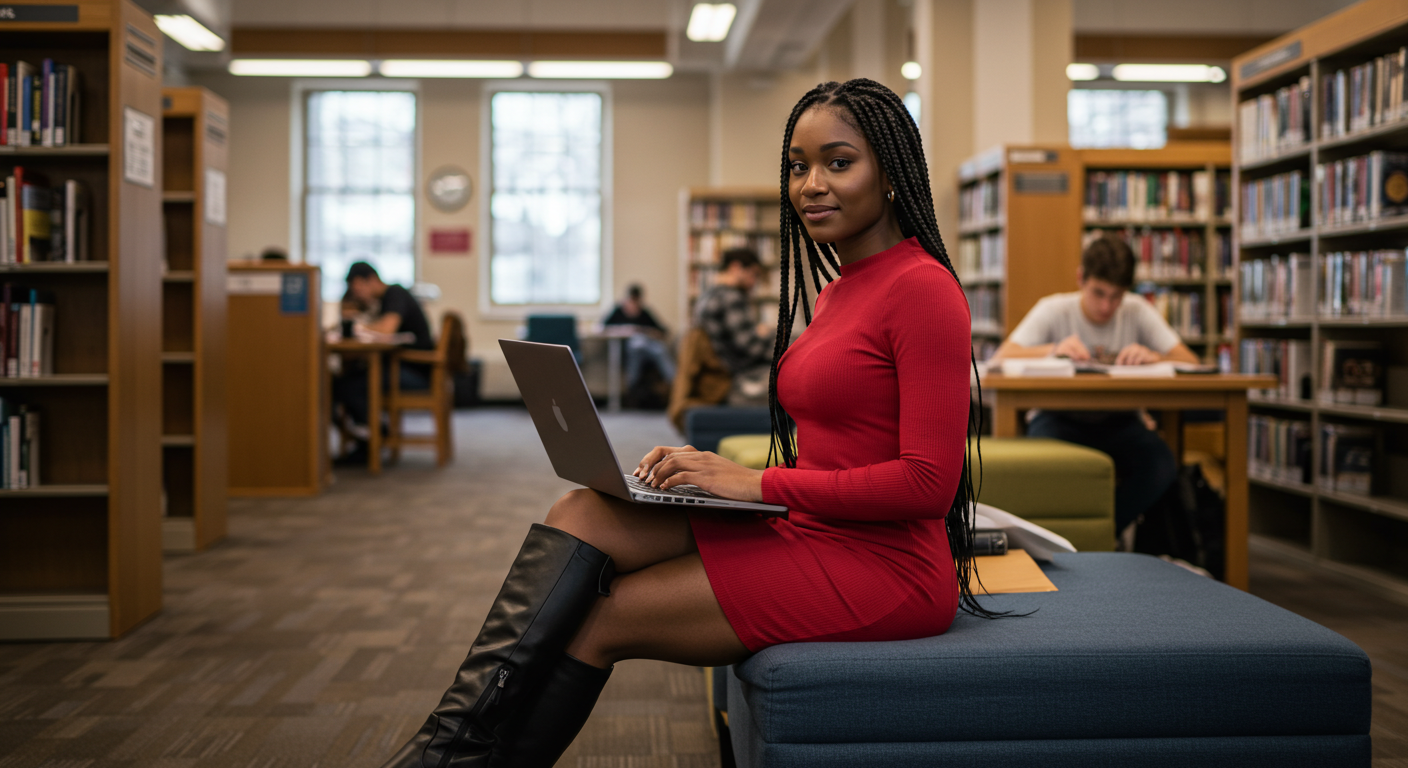In 2024, this entrepreneur experimented with naira and dollar investments and grew her net worth by 29% across three different investment instruments. This is how she did it.
As told to Boluwatife
Model not affiliated with the story. Actual subject is anonymous.
In 2024, I decided to take financial literacy and investments seriously. Until then, I’d stuck with saving; it was straightforward at a time I felt investment instruments like mutual funds and treasury bills were complicated. I didn’t want to lose my money.
But the naira’s downward spiral since mid-2023 and its negative effect on my import-heavy ready-to-wear clothing business changed my attitude toward saving money.
I started saving in dollars. It was a more stable currency, and my business was at least 60% dollar-denominated, so it made perfect sense.
For my dollar savings to work, I needed a fintech product where I could convert my naira easily. So, I picked Risevest. The app automatically converts my money to dollars when I send naira to my savings wallet. Plus, there’s some interest paid on the savings at the end of every month. Win-win.
Using the app made me curious about investments again. They offered different investment instruments, and I started learning about risk appetites and investment options.
But first, research. I turned to YouTube videos and disturbed two friends who work in finance when I came across concepts I didn’t understand.
Ultimately, I decided I wanted to put my money into investments, starting with four options. This is how they did:
US Real Estate
On the 9th of February 2024, I put my $500 savings into a year-long real estate plan on my fintech app.
The real estate plan is a medium-risk plan that uses the invested capital to purchase rental properties in the US. The returns come in monthly, but the amounts aren’t set in stone as they depend on the housing market’s performance.
At the end of the first month, I got almost $6 in returns. It continued every month with varying returns, and I remember thinking, “What? This is great!” It felt like free money.
Also, I saw the returns coming in, but I couldn’t touch the money until my investment matured at the end of the year. It worked for me because I wanted to teach myself discipline.
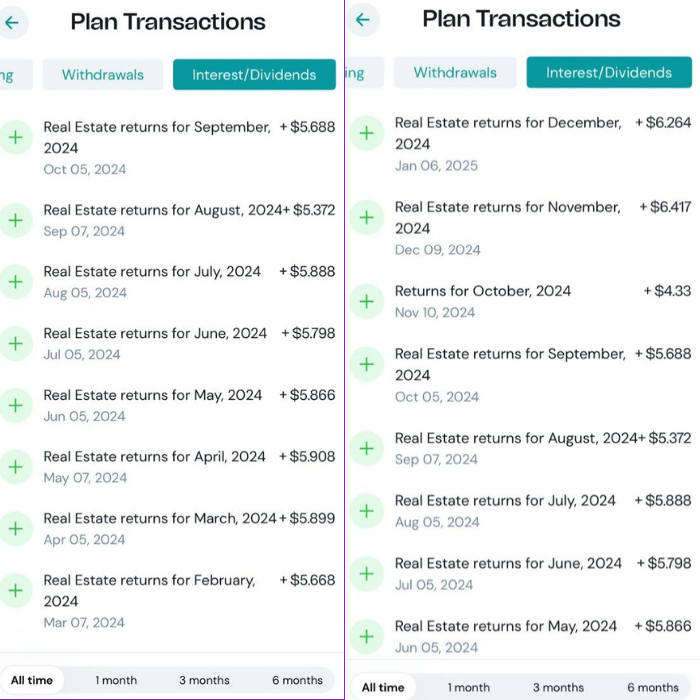
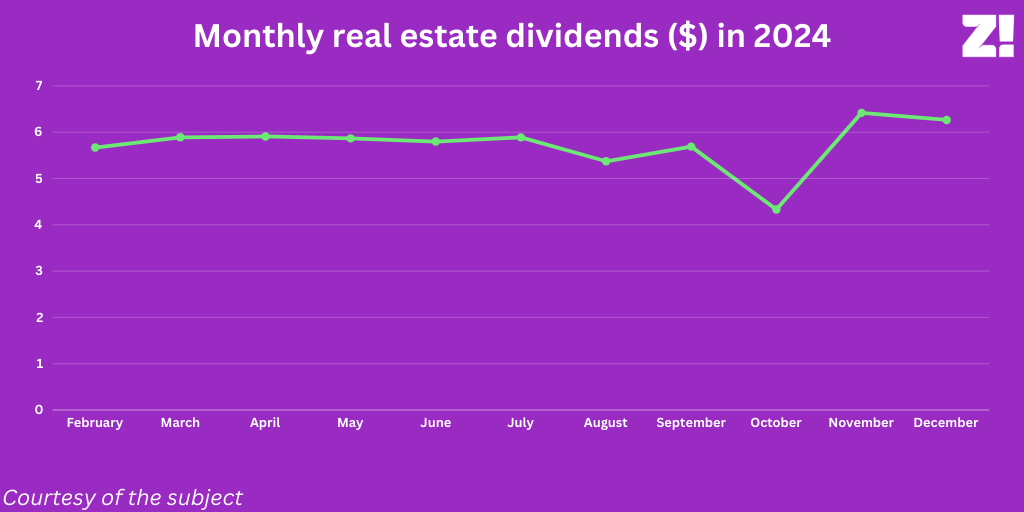
In total, I made about $63 in dividends in 2024 — 12.6% of my invested capital — and I expect more when my plan matures in February 2025. I intend to put more money into the real estate plan and re-invest this year. I’ll possibly keep re-investing for a while; I don’t need the money now, so I’d rather it keep growing.
Agriculture
I’m from Maiduguri, and it’s common to negotiate with corn farmers during planting season — you buy bags of corn from them in anticipation of harvest, store the bags until the demand for corn increases, then sell them for a profit.
I tried this investment for the first time in 2022. I gave my mum ₦200k to buy five bags of corn at ₦40k each, and when she returned my money four months later, I’d made ₦20k profit on each bag, bringing my total returns to ₦100k. It was a sweet 50% profit, and I knew I’d try the investment option again.
So, in 2024, I invested ₦640k in corn cultivation. I bought eight bags at ₦80k each but made ₦12k on each bag four months later.
I didn’t make as much profit this time due to the terrible Nigerian economy and decreased demand for corn. Insecurity was another problem: you could purchase bags from a farmer to discover that bandits had raided his farm, and he lost everything. Storage issues and pests also affected the produce quality.
So, my agricultural investment wasn’t as profitable as I expected. I made only 15% profit on my invested capital. 15% is great; I just hate that the Nigerian economy might be ruining this income opportunity. I plan to try corn farming again and diversify to cocoa and cassava in 2025.
Nigerian Stocks
In September 2024, I heard about Bamboo and downloaded it to see what they were doing there.
An investment banker friend I reached out to explained that investing in stocks requires a lot of informed intuition. Stocks are high-risk investments, and prospective investors need to listen to news about the company they want to invest in. This helps them understand when the company is likely to increase or decrease in value.
I funded my account with ₦5k — an amount I knew I could “gamble with” and bought a few units of MECURE stocks. I was lucky and my stocks tripled in value three months later, and I sold my position at ₦13,217 — a 164% growth. I didn’t want to risk leaving the stocks and potentially losing my initial capital.
The money is still in my Bamboo wallet, and I’ll probably use it for some investment experiments this year. If I lose my money, fine. I can just add a bit more over time and use it to properly understand how stocks work. Who knows? I could also become more comfortable taking risks.
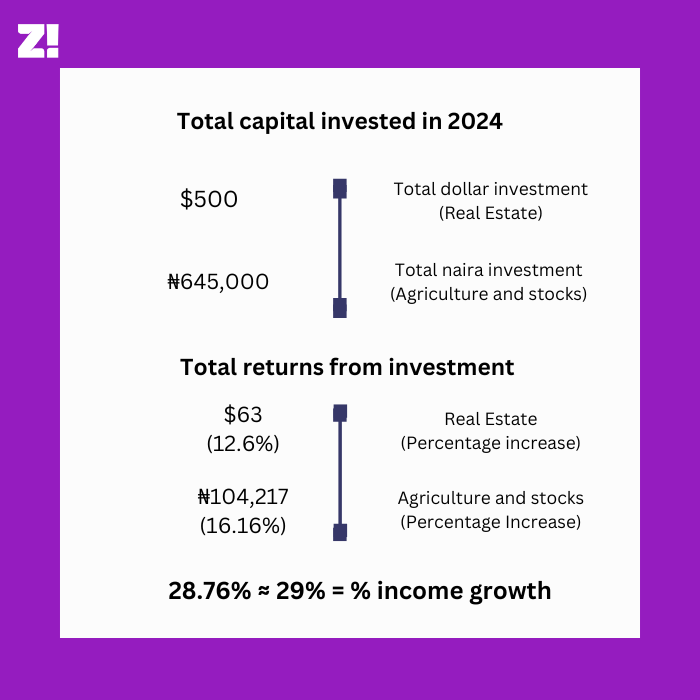
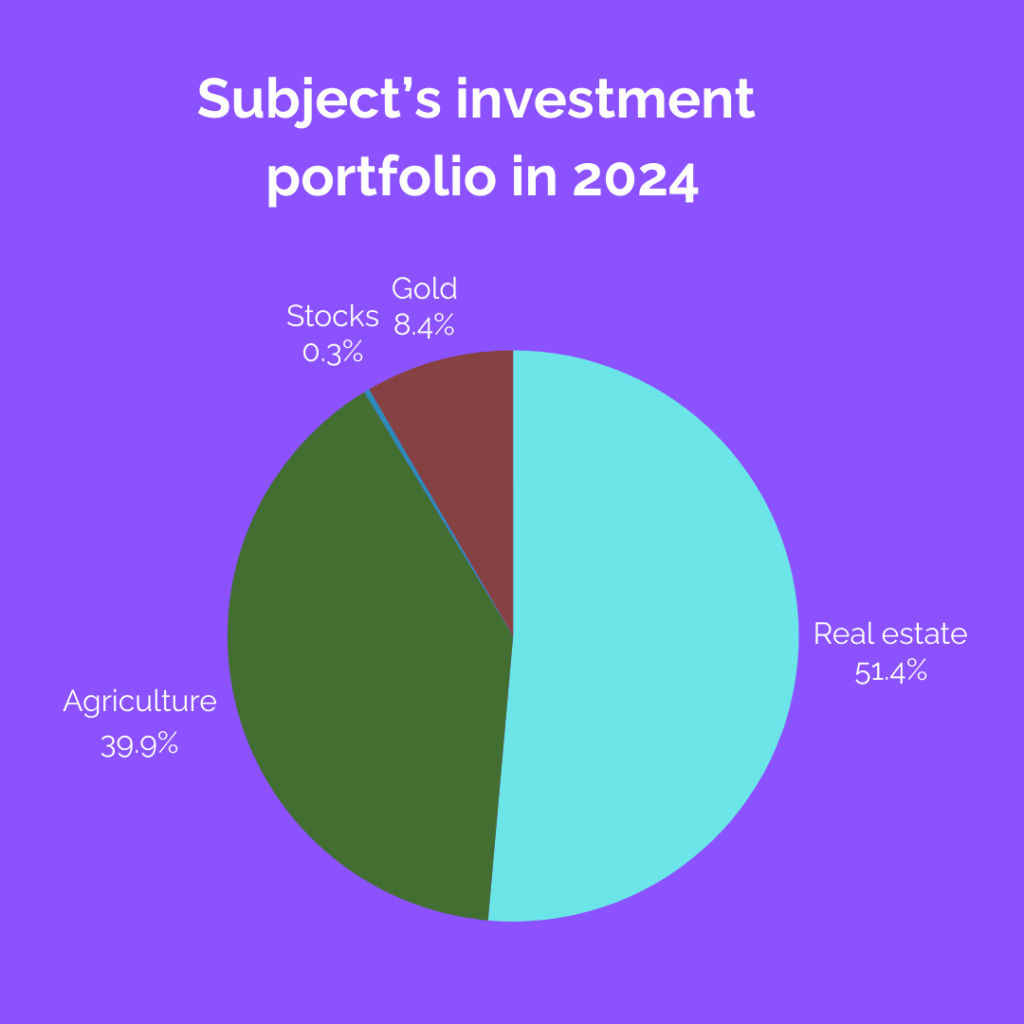
Physical Assets
Another thing I tried in 2024 was investing in gold. I haven’t made any money from it, but in September, I bought a gram of 24-carat gold at ₦135k. Today, a gram costs ₦165k. I don’t plan to resell soon; I just think of gold as a valuable asset in an emergency. I can sell gold at any time. I’ll possibly sell gold before converting my dollars to naira.
Bonus: Dollar Savings
In 2024, I also decided to build up my savings portfolio specifically for investments. Every month, I saved at least 25% of my income plus any extra money I got in my dollar savings wallet. This ensured I had capital for the little investments I did.
This approach also helped me increase my savings by about 60%. In January 2024, I had $1400+ saved. By December, this had grown to $3,535 — minus the capital locked in real estate.
Additionally, the app pays up to 8% annual interest (paid monthly) on wallet savings. The total interest payments came to $79.26 by December 2024.
My investment outlook for 2025
Investing was the best financial decision I made in 2024. Seeing how much I made from the different instruments drove me back to the investment books in November. I liked the idea of extra money and wanted to know more.
I researched more about channels I previously didn’t understand, like treasury bills and mutual funds. I also got advice from my friends, and I’m really proud of how much I know now.
In 2025, I plan to diversify my investment portfolio and grow my wealth as much as possible. In January, I put ₦500k in treasury bills and ₦1.5m in the money market using an investment banking firm called Cordros Capital.
The returns on both investments are fixed at 20% and 25% per annum, respectively. I like that the rate is fixed and not subject to market speculation at all. So, I know that I can look forward to ₦475k returns from both at the end of the year.
If I have extra money, I might dabble in US and Nigerian stocks in the middle of the year. Of course, I’ll reinvest in real estate and agriculture and see how it goes. I’ve also thought about cryptocurrency, but I now accept that I’ll probably never understand it. So, I won’t be investing in crypto.
If you ask me to break my key investment learnings in the past year into action points, they’ll look like this:
- My cardinal rule for investing is to only put my money into things I understand and can explain to anyone else. It’s what I’d advise anyone too.
- Also, knowledge is essential in an investment journey. I took advantage of online resources, friends and communities like Money Africa. I also asked questions at every step of the way, and I’m glad I did. These days, almost all one needs to do is tag investment gurus on social media timelines to get answers. You can also ask questions on Reddit or NairaLand.
- Find something simple you can understand and consistently set a small amount aside to build a savings and investment culture. There’s a culture of shame around savings and investments, especially when we come online and see how much others have saved up.
I’m comfortable with my little nest egg, and you should be too.
Editor’s note: This is not financial advice. Please do all due diligence before investing in any of the channels mentioned in this article.
ALSO READ: 5 Nigerians Earning >₦700k Open Up About the Lives They Can Afford

